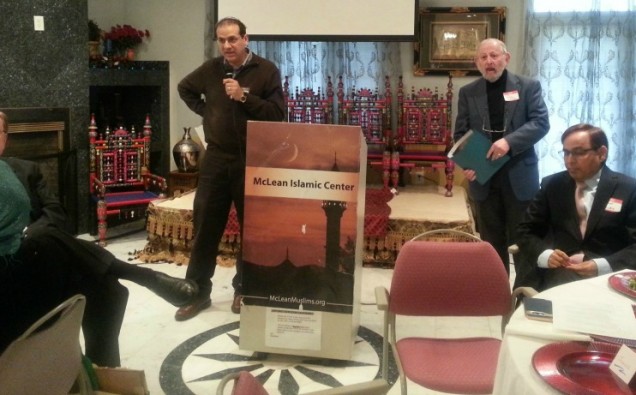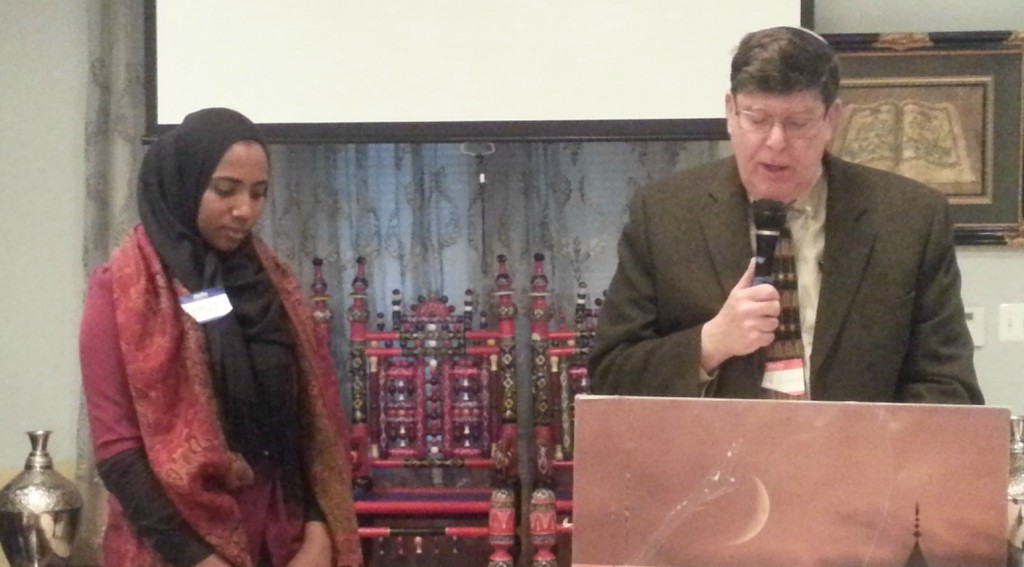
An interfaith convention of Imams and Rabbis has expressed support for United States resettling more refugees from Syria, as five-year-old conflict in the Arab country continues to push vulnerable families into neighboring states already struggling to shelter millions of displaced people.
The event was part of a series of meetings that brings together religious and civil society leaders from Christian, Islamic and Jewish communities in Washington metro area to discuss ways to foster mutual understanding and deal with humanitarian crises.
“The interfaith community is deeply disturbed the way the refugees crisis is going on — the United States and the interfaith community can definitely do more to help the suffering humanity,” said Dr. Maqsood Chaudhry, Director Department of Outreach and Interfaith, McLean Islamic Center, and host of the event.
The convention took place as Syrians saw no end to their plight with around 60,000 men, women, children massed along the Turkish border after Russian and Bashar al Assad regime forces bombarded the northern besieged city of Aleppo. Turkey is already hosting around three million Syrian refugees.
The Obama Administration has extended more than $ 5.1 billion in humanitarian assistance to Syrians affected by the conflict since March 2011 and according to the State Department Washington remains the single-largest donor of humanitarian aid for Syrians afflicted by the crisis the “biggest humanitarian emergency of our era.”
The issue of the U.S. increasing the number of Syrian refugees into the country has gained much attention during the 2016 presidential election political season in the backdrop of ISIS-inspired November 2015 Paris attacks and San Bernardino shootings, which have led to a rise in rhetoric against Muslims. A majority of Republican politicians oppose the idea of United States expanding its share of taking in Syrian refugees.
So far, the U.S. has around 2650 Syrian refugees on the American soil and President Barack Obama has pledged to bring 10,000 more Syrian refugees to the United States.
At the interfaith convention, the participants felt that Washington has elaborate mechanisms in place to balance its national security concerns with allowing a bigger number of Syrian refugee into the country, which, they emphasized, would be in line with traditional American largesse and tradition of inclusiveness in the face of humanitarian catastrophes like the Syrian refugees crisis.
Rabbi Gerry Serotta, Executive Director Interfaith Conference of Metropolitan Washington and Imam Haytham Younis also voiced their support for efforts to mitigate the suffering Syrian refugees. The United States, faith leaders said, should welcome more innocent Syrian refugees, who have had to flee the conflict.
Syrian-American businessman Wasim Entabi told the gathering that half of the 25 million pre-conflict Syrian population were children, and many of them now face an uncertain future as refugees in regional countries. He spoke of efforts that Washington Area Interfaith Refugee and Resettlement Task Force has been making to help settle Syrian refugees.
Remaz Abdelgader, a George Mason University student, who recently gained spotlight for standing up as a voice against anti-Muslim rhetoric and gained emotional support from Democratic presidential candidate Bernie Sanders in a town hall meeting, called for efforts to unite against bigotry of all sorts.
After the formal discourse, the Muslim and Jewish participants had a candid bridge-building fishbowl conversation, where they talked about what one community thought of the other, what they liked and where they differed.
The exercise in finding out convergences for peaceful coexistence in the larger international and Middle Eastern perspective also highlighted the need to combat Islamophobia as well as anti-Semitism. The Washington metro area interfaith organizations – with several in attendance – have been holding regular conventions, promoting a pluralist vision of coexistence, as preached by Abrahamic faiths.
“We have to work for peace, we have to do it through interfaith discussion and harmony,” Daniel Spiro, author and Coordinator Jewish-Islamic Dialogue Society of Washington said.















